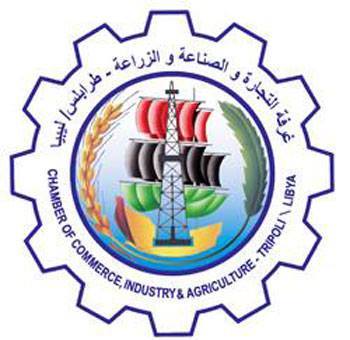The Libyan Grain Bureau recommended the preservation of a strategic reserve of grains. The recommendation came during the first meeting of the Board of Trustees of the Libyan Grain Bureau, held under the chairmanship of the Minister of Economy and Trade, Mohamed Al-Hwej.
The meeting, held yesterday at the Ministry of Economy and Trade’s Tripoli headquarters, included members of the Board of Trustees of the Grain Bureau, the Minister of Finance, Khaled Al-Mabrouk, the Chairman of the General Union of Chambers of Commerce, Industry and Agriculture, Mohamed Al-Raied, the Undersecretary of the Ministry of Agriculture for Agricultural Reclamation, the Undersecretary of the Ministry of Planning for Development Affairs, the Director General of the Grain Bureau in charge, and the Director of the Internal Trade Department at the Ministry of Economy.
Grain Bureau has an important role
Commenting on the meeting and its results, the President of the General Union of Chambers of Commerce, Industry and Agriculture, Mohamed Al-Raied, stressed the importance of the role of the Grain Bureau especially in determining and providing the supply of grains in in countries and global arenas in which grains are available such as wheat, price, corn, and soy. The Grain Bureau can provide the necessary facilities for companies and mills in the supply of grain, and to establish obstacles and difficulties facing the work of the Bureau and ways to address them.
Grain Bureau coordinates between producers and wholesalers
Al-Raied referred to determining the mechanism for providing mills and companies with local production of grain and coordination between mill owners and agricultural projects for grain production in the southern region, which provided part of the local market’s needs for wheat and barley during this season.
Supporting local grain production
In this regard, Al-Raied stressed support for local production of grains within the framework of encouraging investment in the agricultural sector, supporting farmers to increase and develop national production and maintaining food security for consumers. This includes supporting agricultural projects to produce improved seeds to ensure the continuation of agricultural projects in production and increasing production in the coming years.
Self-sufficiency in grain production
Al-Raied noted the keenness of the General Union of Chambers of Commerce, Industry and Agriculture to support private farmers to continue to produce part of the country’s needs of wheat and other grains to achieve self-sufficiency, as happened in 2010, especially of durum wheat. He stressed the willingness of the Libyan Grain Bureau to maintain the strategic stock of grain and support local production of wheat.
Libya currently has a good stock of flour
Regarding the availability of wheat, both hard and soft, and the impact of the continuation of the Ukrainian war on the Libyan stock of grain, Al-Raied said, “There is a good stock of flour in the Libyan mills, as well as soft and hard wheat for months to come, in addition to importing large quantities of grain from several countries, which is an alternative to the Ukraine.”
Libya needs approximately 1.6 million tons of wheat annually
Libya needs approximately 1.6 million tons of wheat annually, most of which is durum wheat, and this quantity can be provided from several countries, whether from Russia or Ukraine itself or other European countries.
Therefore, Libya will not suffer from the crisis of providing flour and other types of durum wheat during this year, with quantities of durum wheat available locally.’’
Minister of Economy and Trade discusses establishment of Libyan Grain Bureau (libyaherald.com)
Food Security: First meeting of Advisory Committee of the Grain Bureau (libyaherald.com)
NESDB discusses food security and social protection with World Food Programme (libyaherald.com)
Food security: Libya happy to allow the re-export of imported goods (libyaherald.com)
Tripoli ‘‘Food Security’’ extensive conference agenda published (libyaherald.com)
Food Security forum to be held in Tripoli 14-16 October (libyaherald.com)
Food security meeting calls for closer North African integration (libyaherald.com)










